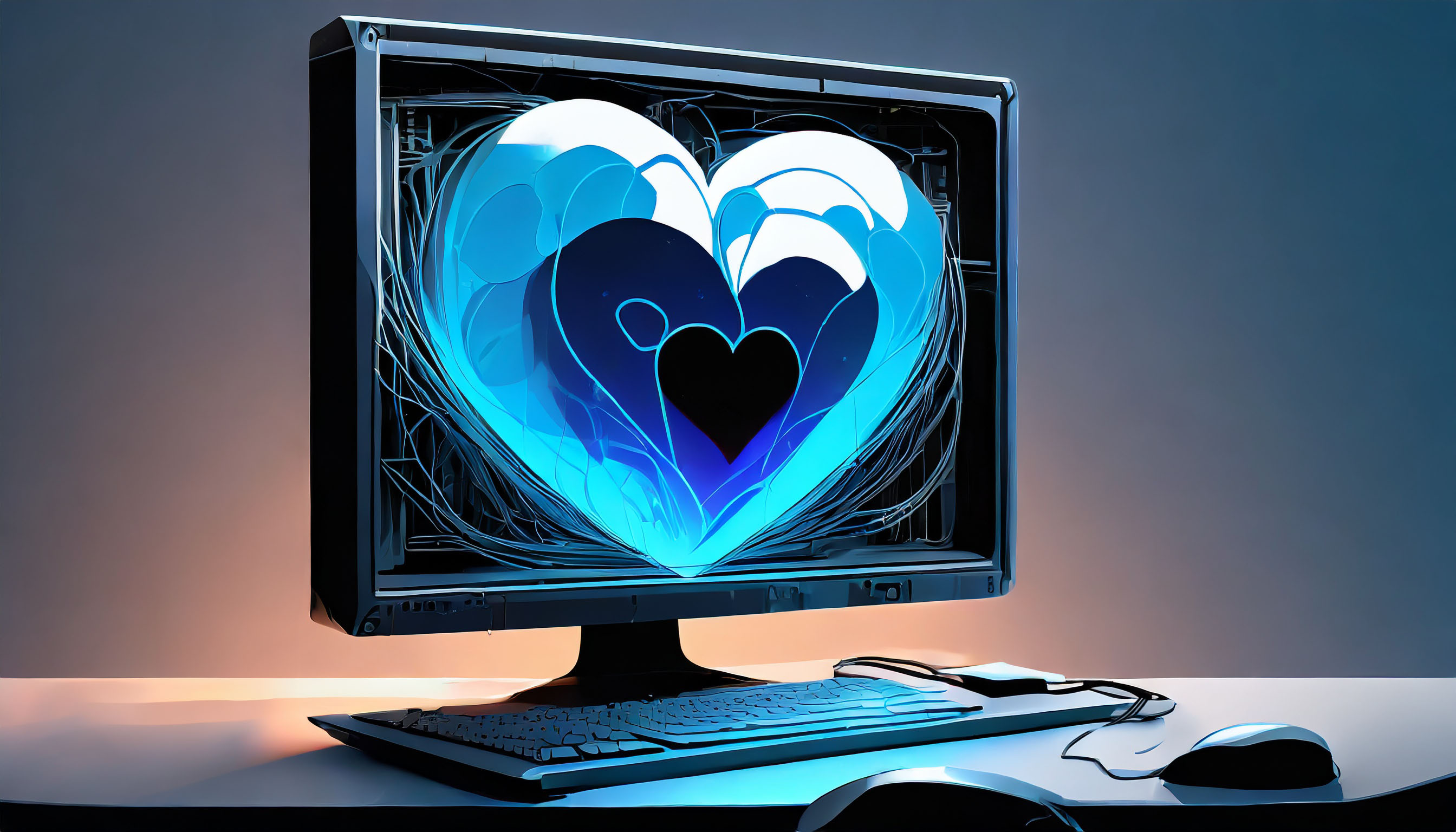By Em Mills and Devon Murray
If you can't imagine a future without AI, you're not alone. AI has transformed countless aspects of daily life and will only get more influential, leading some to ask, "Is AI going to take over the world?"
Fears of robot overlords aside, a more pressing concern lies in whether AI can learn to address the systemic inequalities that shape our society and inform our data sets. Left unchecked, AI is doomed to replicate and amplify the prejudice reflected in dominant culture. What needs to happen to set AI on the right path?
We spoke with AI experts Mona Diab '92, director of Carnegie Mellon University's Language Technologies Institute, and Aliah Yacoub '18, AI philosopher at Synapse Analytics and founder of the publication techQualia, to understand the latest developments and challenges in the realm of AI and why it's important to incorporate ethics into tech.

Mona, you've been working with AI for more than two decades. How have things changed over the years?
MD: Our field used to be a bit of a hidden secret until the boom in 2017 when we started seeing far more large language model technologies hitting the market. Now, with things like ChatGPT, those technologies have really taken over the narrative and are much more mainstream.
What are some of the challenges accompanying the AI boom?
AY: The most critical challenges that we're facing today are of an ethical and social nature. Instead of focusing too heavily on questions about AI displacing workers or killer robots taking over the world, we should direct our attention to the pressing issues of feminist AI, geopolitical exclusion, regulation issues, bias and more.
We also face particular sociopolitical obstacles that make AI usage complicated: Countries can't create regulatory frameworks at the same pace that the technology itself advances or even at the same pace with each other. In Egypt, this is amplified by certain structures and governance issues that make the regulation of responsible AI a real challenge.
MD: Take things like Alexa, Siri, Google Assistant and machine translation. Many people blindly assume that they can always be trusted, which is very scary. In general, Google Translate does a phenomenal job. However, if you translate a language that has a limited digital presence -- meaning how much information about the language is accessible for AI to pull from online -- then your technology is less than perfect and you can run into a lot of trouble. With the growing accessibility and dependence on these technologies, from basic translation to courtrooms, it's imperative that they have a built-in notion of responsibility.
How can we build more responsible, culturally sensitive AI?
MD: It starts with building talent. We talk a lot about computational and critical thinking in computer science programs, but what I'd like to add to this conversation is responsible thinking. We want the people working with these new technologies to come in with social responsibility in mind, as opposed to adopting it later as a remedial or reactive attitude.
That's why I came back to the university; it's where people begin to study and work with these technologies. The idea is to start students out already understanding and grappling with these dynamics from the get-go.
AY: Because AI has become a fundamentally interdisciplinary field, it's vital for experts across specializations -- particularly the social sciences -- to have a voice and lend their personal skill sets to the field. That's how we can develop responsible AI.
Can you give us some examples of social responsibility in AI?
AY: One example of this is Data Feminism, a feminist AI approach which aims to address the issue of biased data sets that perpetuate inequalities. In the tech world, women are grossly underrepresented in every stage of production, from the theoretical to the technical. Feminist AI seeks to incorporate an analysis of contextual knowledge, power relations and marginalized perspectives, helping us understand who AI systems represent and who they ultimately serve.
Another example of social responsibility is localizing AI content to bridge regional literacy gaps. At techQalia, we approach this by writing in an accessible and exhaustive way, avoiding confusing academic jargon and releasing all of our publications in English and Arabic.
MD: Translating sciences into other languages so that people can study in their native language. It's not about dispelling English as a central language for scientific expression but rather enriching the scientific landscape by unlocking people's creativity in their native languages. This way, we create new algorithms, approaches and technologies. It comes with the territory of diversity.
Why is it important for Egypt and the Arab world to get involved with these technologies now?
MD: Facilitating scientific innovation in Egypt and the Arab world will enable local communities to flourish economically and enrich the scientific landscape as a whole, helping to balance out inequality in who gets a say in tech development. Right now, Silicon Valley predominantly defines the value systems of large language models because they're the ones with the means to build these technologies at scale. This creates a level of hegemony that we need to remain cognizant of, particularly in the context of colonialism and imperialism.
AY: Right now, Egypt struggles with severe AI illiteracy. We are rarely ever early adopters of new technologies, which means we miss out on the benefits of adopting generative AI across industries like healthcare and education. Aside from missed economic opportunities, the fact that algorithms are not trained on Arabic data can also have dangerous repercussions on our sense of identity, reproduction of knowledge and representation in data sets.
"We talk a lot about computational and critical thinking in computer science programs, but what I'd like to add to this conversation is responsible thinking."
Mona, a large portion of your work has focused on expanding the understanding of Arabic in large language models. Can you tell us more about this?
MD: My work came to fruition at Meta in the context of social media. People don't commonly speak in Modern Standard Arabic. On social media platforms, they use their own dialect and vernacular, so a reductionist understanding of Arabic like MSA renders translation ineffective and inaccurate. I challenged Meta to account for these variations, leading to more effective translations, better user experience and easier recognition of hate speech. Translating Arabic is a microcosm of exploring how to push the boundaries of computer science as a technology.
I want to get involved in AI. Where do I start?
AY: It's never too early and never too late to get involved with AI. Most importantly, it's never unrelated to your studies, no matter what they are. We actually recently published an excellent resource in English and Arabic for students called techQualia Career Guide, which offers insight into jobs in AI based on different fields of study.
MD: I highly encourage students to seek out ways of participating in global initiatives around AI. I have an initiative called 60-60 that I would really love for people to join. You don't have to travel to be able to participate in most initiatives. You can partake in events, courses, tutorials and programs online that will give you the opportunity to build a global network.
Any final thoughts?
MD: I'm actually an optimist when it comes to this technology because at the end of the day, it is human agency that controls it. As much as we are good, the technology will be good and will be put to good use.
AY: It's very difficult to think of an area of human life or human experience that AI hasn't already transformed or is plotting to transform. It's essential to start now, from the very beginning, focusing on ethical development.
___

Diab studied computer science at AUC and completed her master's in computer science at The George Washington University and her PhD in computational linguistics at the University of Maryland, moving on to conduct postdoctoral research at Stanford University and serve in leadership roles at companies like Amazon and Meta. Diab's work combines linguistics and computer science to make AI-powered tools effective and inclusive, focusing on responsible AI.

Yacoub studied philosophy and political science at AUC and completed her master's in philosophy at the University of Groningen. Her work focuses on the ethics, science and implementation of machine learning AI algorithms within a broader social context. She strives to explain, inform and critique the workings and implications of AI using a philosophical framework.


